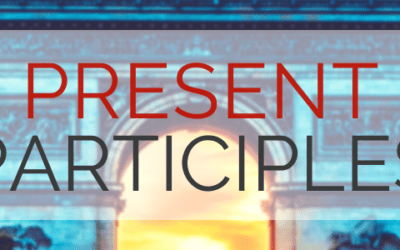French grammar might not sound like the most exciting topic, but grammar is the backbone of a language. If you take the time to understand these grammatical concepts in French, you will save time and effort down the road learning more advanced grammar concepts, because you will be able to “piggyback” off of the structure you already know.
Are you a complete beginner?
Before you start learning French grammar, you should read over our quick overview of how French grammar is different from English grammar. This will help prepare you to understand the different concepts you will need to master in order to learn French.
Below are our grammar lessons, divided by major concept and part of speech. Each lesson is designed to be read in any order, but it’s easier to start with the overview pages if the concept has one.
French Grammar Lessons
Adjectives
Adverbs
Conjunctions
Prepositions
Pronouns
Structure
- The French Alphabet
- Negation in French
- French Interrogatives
- Il Est versus C’est
- How to Discuss Time
- Using Comparatives and Superlatives
Verbs
Present
- The Four Core Verbs
- Overview of the Present Tense
- Conjugating -IR Verbs
- Conjugating -RE Verbs
- Imperative Tense
- Present Participles
Past
Future and Conditional
Subjunctive
Special Verb Uses
Grammar Posts by Learner Level
Look for grammar lessons by your level of French proficiency:Latest Grammar Lessons
The Four Core French Verbs: Être, Avoir, Faire, & Aller
The four core French verbs (être, avoir, aller, and faire) are the most important verbs to learn and will dramatically increase your French proficiency.
Il Est Versus C’est: When to Use Each Form
Using il est versus c’est is a subtle nuance of French that native speakers use effortlessly but can require conscious effort on non-native French learners’ parts. There are some consistent rules to using these French grammar structures, and we cover some notable exceptions, as well as when using either structure implies different meanings.
French Y and En Pronouns
Pronouns ‘y’ and ‘en’ are commonly taught later than direct and indirect object pronouns in French, and they have multiple meanings. They replace something and have different placements in sentences compared to English.
How to Talk about Time in French: Hours, Days, and Years
Talking about time and dates in French can be challenging for English speakers due to the different verb tenses and idiomatic expressions. Learning the vocabulary words and sentence structures for expressing time in French is necessary for more advanced speakers, and may require some practice and time to learn.
French Present Participles
French present participles are verb forms showing present circumstances or events that are in the midst of happening, as well as modifying nouns as another type of adjective. They are simple to form, with relatively few exceptions and nuances to remember, but they will expand your grammatical repertoire significantly.
How to Form French Comparisons and Superlatives
Comparative and superlatives in French are generally simpler than in English, though there are a few irregular forms to use and an unusual structure in certain cases. However, if you remember the limited irregular forms and to use the appropriate gender and singular/plural endings, you will have mastered most of this grammar structure.






